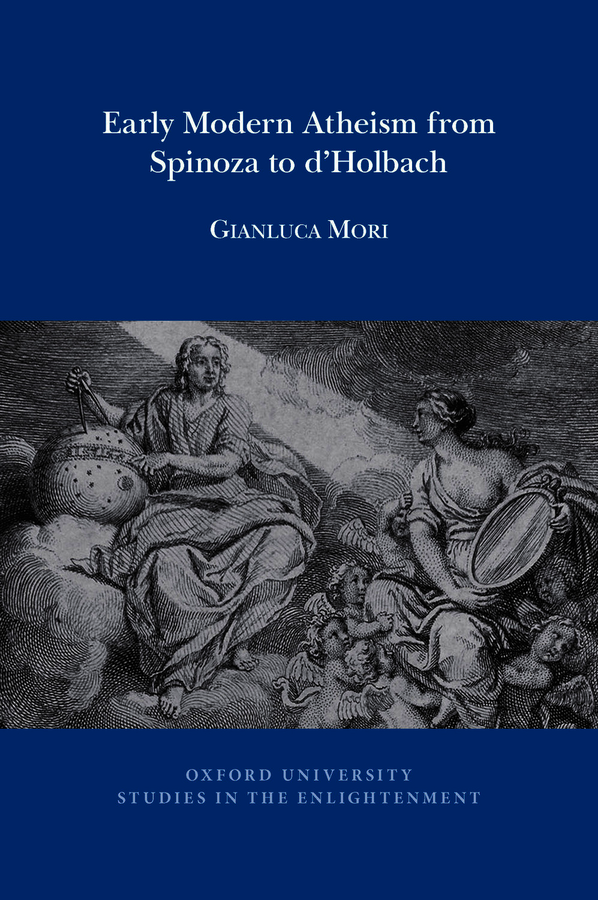
Gianluca Mori,
Early Modern Atheism from Spinoza to d’Holbach,
Oxford University Studies inthe Enlightenment, 2021.
EAN13 : 9781800348158.
Examining the birth and development of early modern atheism from Spinoza’s Tractatus theologico-politicus (1670) to d’Holbach’s Système de la nature (1770), this study considers Spinoza, Hobbes, Cudworth, Bayle, Meslier, Boulainviller, Du Marsais, Fréret, Toland, Collins, Hume, Diderot, Voltaire, and d’Holbach and positions them in a general interpretive scheme, based on the idea that early modern atheism is itself an unwanted fruit of early modern metaphysics and theology.
Breaking with a long-standing tradition, Descartes claimed that it was possible to have a "clear and distinct" idea of God, indeed that the idea of God was the "clearest and most distinct" of all ideas accessible to the human mind. Humans could thus obtain a scientific knowledge of God’s nature and attributes. But as soon as God became an object of science, He also became the object of a thoroughgoing scientific analysis and criticism.
The effortlessness with which early modern atheists managed to turn round their adversaries’ arguments to their own favour is a sign that the new doctrines of God which emerged in the seventeenth-century, each based in its own way on principles and dogmas related to the new science of nature, were plunging headfirst towards the precipice under their own steam.
*
Contents
Foreword
Chapter 1: What is early modern atheism?
Chapter 2: The case of Spinoza
Chapter 3: Virtual atheists: from Cudworth to Bayle
Chapter 4: Clandestine atheists
Chapter 5: British atheism: Toland, Collins, Hume
Chapter 6: Scepticism, deism and atheism
Epilogue
Bibliography
Index
*
Gianluca Mori is a professor in the History of Philosophy at UPO (Università del Piemonte Orientale), Vercelli, Italy. His main areas of research include Descartes and cartesianism, Pierre Bayle, early modern atheism and free thought from the middle of the seventeenth century to the end of the eighteen century, and David Hume's philosophy of religion.